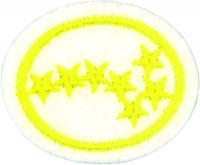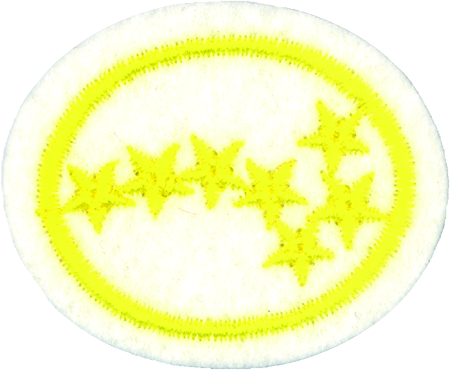Difference between revisions of "AY Honors/Stars/Requirements 2"
Jomegat bot (talk | contribs) (Bot: Automated import of articles *** existing text overwritten ***) |
m |
||
| (9 intermediate revisions by 3 users not shown) | |||
| Line 1: | Line 1: | ||
| − | + | {{HonorSubpage}} | |
| − | |||
| − | |||
| − | + | <section begin=Body /> | |
| − | |||
| − | + | <b>1. <section begin=req1 /><noinclude><translate><!--T:1--> | |
| − | <section end= | + | </noinclude>Answer the following questions: |
| + | <noinclude></translate></noinclude><section end=req1 /></b> | ||
| − | :<b> | + | :<b>a. <section begin=req1a /><noinclude><translate><!--T:2--> |
| − | <section end= | + | </noinclude>What is the earth's nearest celestial neighbor? What is its distance from the earth? |
| + | <noinclude></translate></noinclude><section end=req1a /></b> | ||
| − | :<b> | + | :<b>b. <section begin=req1b /><noinclude><translate><!--T:3--> |
| − | <section end= | + | </noinclude>What governs the tides? |
| + | <noinclude></translate></noinclude><section end=req1b /></b> | ||
| − | :<b> | + | :<b>c. <section begin=req1c /><noinclude><translate><!--T:4--> |
| − | <section end= | + | </noinclude>What causes an eclipse? |
| + | <noinclude></translate></noinclude><section end=req1c /></b> | ||
| − | <b> | + | :<b>d. <section begin=req1d /><noinclude><translate><!--T:5--> |
| − | <section end= | + | </noinclude>What is a shooting star? |
| + | <noinclude></translate></noinclude><section end=req1d /></b> | ||
| − | <b> | + | <b>2. <section begin=req2 /><noinclude><translate><!--T:6--> |
| − | <section end= | + | </noinclude>Make a diagram showing relative positions and movements of the earth, sun, and moon. Show positions and area events for eclipses of the sun and moon. One may demonstrate by using an orange, walnut, and marble, or similar objects, to show positions and movements of the earth, sun, and moon when there is an eclipse of the sun and when there is an eclipse of the moon. |
| + | <noinclude></translate></noinclude><section end=req2 /></b> | ||
| − | <b> | + | <b>3. <section begin=req3 /><noinclude><translate><!--T:7--> |
| − | <section end= | + | </noinclude>Make a diagram of our solar system and be able to name the planets in order from the sun. |
| + | <noinclude></translate></noinclude><section end=req3 /></b> | ||
| − | <b> | + | <b>4. <section begin=req4 /><noinclude><translate><!--T:8--> |
| − | <section end= | + | </noinclude>How fast does light travel? How far does light travel in a year? |
| + | <noinclude></translate></noinclude><section end=req4 /></b> | ||
| − | <b> | + | <b>5. <section begin=req5 /><noinclude><translate><!--T:9--> |
| − | <section end= | + | </noinclude>What is the difference between planets and fixed stars? Identify in the sky eight fixed stars. |
| + | <noinclude></translate></noinclude><section end=req5 /></b> | ||
| − | <b> | + | <b>6. <section begin=req6 /><noinclude><translate><!--T:10--> |
| − | <section end= | + | </noinclude>What is a constellation? Name and point out six. Name two constellations visible throughout the year. |
| + | <noinclude></translate></noinclude><section end=req6 /></b> | ||
| − | <b> | + | <b>7. <section begin=req7 /><noinclude><translate><!--T:11--> |
| − | <section end= | + | </noinclude>For the Northern Hemisphere: draw a chart of the Big Dipper, Cassiopeia, and the North Star. For the Southern Hemisphere: draw a chart of the Southern Cross, Orion and Scorpio. |
| + | <noinclude></translate></noinclude><section end=req7 /></b> | ||
| − | <b> | + | <section begin=challenge /> |
| − | <section end= | + | <b>8. <section begin=req8 /><noinclude><translate><!--T:12--> |
| + | </noinclude>What is the Milky Way? Observe the Milky Way in the night sky. | ||
| + | <noinclude></translate></noinclude><section end=req8 /></b> | ||
| + | <section end=challenge /> | ||
| − | <b> | + | <b>9. <section begin=req9 /><noinclude><translate><!--T:13--> |
| − | <section end= | + | </noinclude>What is the morning star and evening star? Why does it carry both names? Observe the morning and evening star in the sky. |
| + | <noinclude></translate></noinclude><section end=req9 /></b> | ||
| − | <b> | + | <b>10. <section begin=req10 /><noinclude><translate><!--T:14--> |
| − | < | + | </noinclude>Explain zenith and nadir. |
| + | <noinclude></translate></noinclude><section end=req10 /></b> | ||
| − | <b> | + | <b>11. <section begin=req11 /><noinclude><translate><!--T:15--> |
| − | <section end= | + | </noinclude>What is the aurora borealis? What causes it? |
| + | <noinclude></translate></noinclude><section end=req11 /></b> | ||
| − | + | <b>12. <section begin=req12 /><noinclude><translate><!--T:16--> | |
| − | + | </noinclude>Discuss the statement made by Ellen G. White in Early Writings, page 41, concerning the opening in Orion. | |
| + | <noinclude></translate></noinclude><section end=req12 /></b> | ||
| + | <section end=Body /> | ||
Latest revision as of 17:15, 3 January 2023
1. Answer the following questions:
- a. What is the earth's nearest celestial neighbor? What is its distance from the earth?
- b. What governs the tides?
- c. What causes an eclipse?
- d. What is a shooting star?
2. Make a diagram showing relative positions and movements of the earth, sun, and moon. Show positions and area events for eclipses of the sun and moon. One may demonstrate by using an orange, walnut, and marble, or similar objects, to show positions and movements of the earth, sun, and moon when there is an eclipse of the sun and when there is an eclipse of the moon.
3. Make a diagram of our solar system and be able to name the planets in order from the sun.
4. How fast does light travel? How far does light travel in a year?
5. What is the difference between planets and fixed stars? Identify in the sky eight fixed stars.
6. What is a constellation? Name and point out six. Name two constellations visible throughout the year.
7. For the Northern Hemisphere: draw a chart of the Big Dipper, Cassiopeia, and the North Star. For the Southern Hemisphere: draw a chart of the Southern Cross, Orion and Scorpio.
8. What is the Milky Way? Observe the Milky Way in the night sky.
9. What is the morning star and evening star? Why does it carry both names? Observe the morning and evening star in the sky.
10. Explain zenith and nadir.
11. What is the aurora borealis? What causes it?
12. Discuss the statement made by Ellen G. White in Early Writings, page 41, concerning the opening in Orion.


